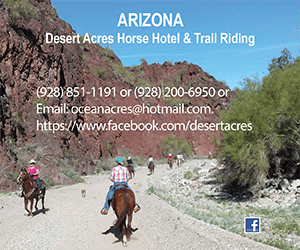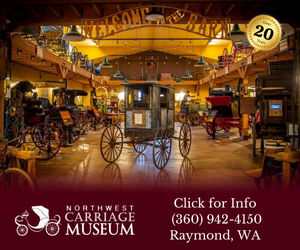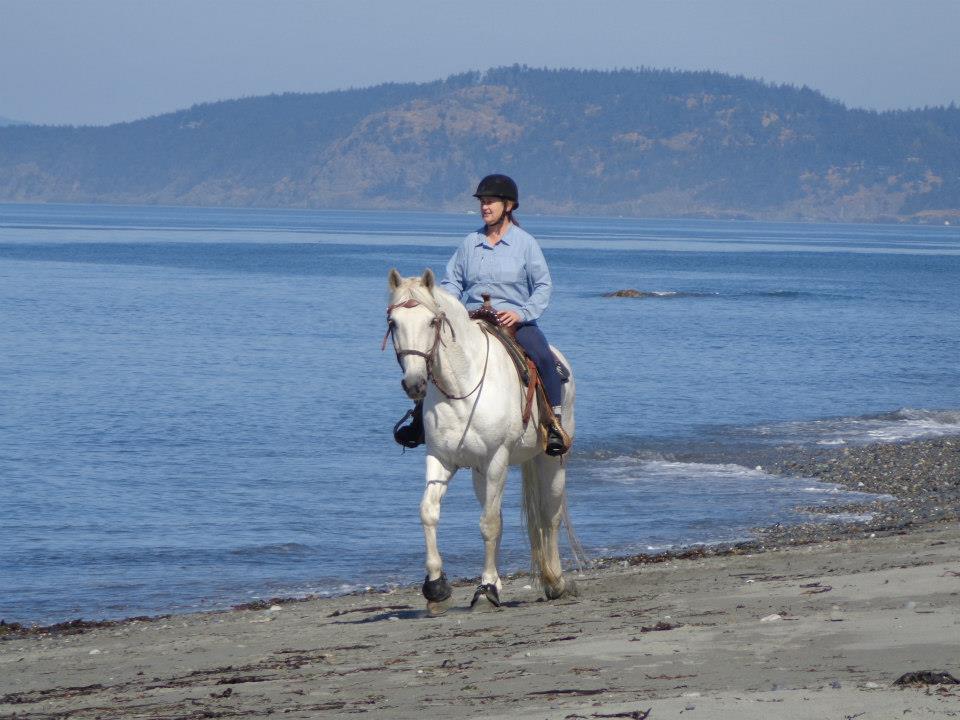What Makes a Horse Easy to Train?
by Kim Roe
Put a group of horse people together and the talk turns to horses. We grumble about our training difficulties and rejoice in the successes. Easy horses make us feel like great trainers and the hard ones teach us lessons.
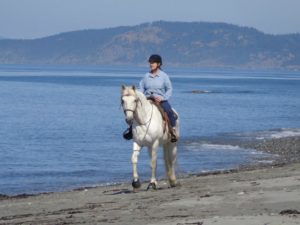
An “easy” horse is one that retains the training and improves each day. It appreciates and seeks praise and pays attention to its rider instead of the environment or other horses. Responsive to the aids, it seems to enjoy the work. A good horse is like that girl in school sitting in the front row who always raises her hand when the teacher asks a question. When I ride an easy horse it doesn’t feel like I’m doing any work.
Difficult horses, on the other hand need the same lesson repeatedly, sometimes going months without improving. They focus on things outside the arena and seem to resent or fear work. They resist the aids, can be barn sour, herd bound, or spooky. Hard horses can be innately stiff or crooked. Trainers (and we are all trainers if we handle a horse) stay awake at night wondering how to get the hard horse trained.
Some factors that influence a horse’s trainability:
- Soundness, conformation, and health. Hindered progress with a horse or bad behaviors such as tension, shying, bucking, or refusing to go forward are often the result of poor conformation or health issues. Ulcers, dental problems, saddle fit issues, or pain of any kind make our horses react in unpredictable and undesirable ways. Many equine professionals are there to help: the vet, equine dentist, chiropractor, massage therapist, and saddle fitter are important people to have on your horse’s team. Conformation issues that make a horse’s job difficult can also lead to training problems.
- Early training. From the moment a foal is born and encounters a human he is in training. Born wild, a cute little foal can kick your teeth out just as quickly as a wild stallion. It’s essential that we begin training the young foal the basics of civilized horse behaviors shortly after birth. Young horses need to learn to respect but not fear humans. If I have to choose between a wild, fearful horse or a “lap-dog” spoiled one, I’ll take the wild one any day. Building up a horse’s confidence and trust is far easier than developing respect in a horse that already believes people are doormats that provide hay and grain. Developing trust is essential in early training. We ask our horses to do many things that strike them with fear. When people respond to a horse’s fear with anger, frustration, or violence, that horse may never be easy again.
- The horse should suit the rider. I’ve been taught the rider and horse should look similar. A long-limbed rider needs a long-limbed horse, and a short and stocky person should ride a short and stocky horse.
It’s even more important that our personalities are complementary. Opposites attract in the horse and rider world. A nervous rider will get into trouble with a nervous horse, and a laid back, unmotivated rider will not get much done with a laid back horse.
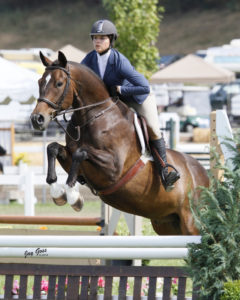
When personalities clash, we either have to pass that horse on to another rider or change ourselves. It’s impossible to change the horse’s personality to suit us. Changing ourselves in order to suit our horses can be difficult, but when we do the positive ramifications can echo throughout our lives. Horses teach us to be courageous, patient, and assertive. We can be grateful for the “hard” horses that change us for the better.
- The horse should suit the job. For centuries, horses have been bred for characteristics that make them suitable for certain jobs. Sometimes we hope a horse will be good at what we want to do, but the horse doesn’t have his heart in it. He may be bred for it and have the conformation but the training is hard. I once had a lovely Oldenburg gelding, FFenominal, bred for dressage and jumping. I hoped he would be my upper level dressage horse, but he wasn’t happy in the work. I started jumping him and he was both naturally talented and seemed to enjoy it. It saddened me to part with him, but I sold him to a hunter/jumper trainer and it wasn’t long before he was winning ribbons in hunter shows.
All types of horses are rewarding to work with. Our job is to do the best we can to give them a chance to be good, happy horses. We must give our horses jobs and riders that suit them, take care of their health, and make sure we continue to educate ourselves to improve our training skills. All this will help a hard horse become easier.
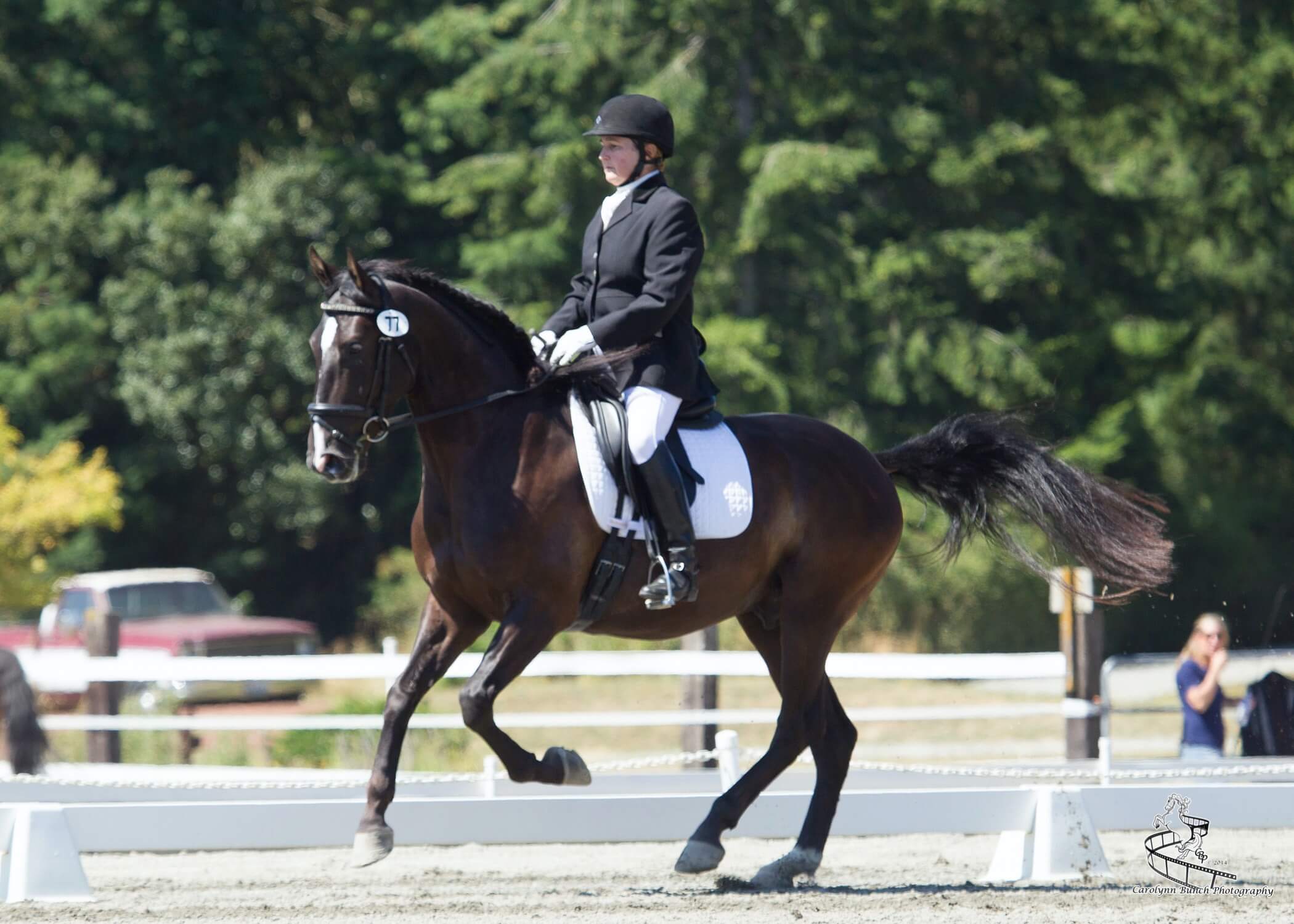
Kim Roe grew up riding on the family ranch and competed in Western rail classes, trail horse, reining, working cow, and hunter/jumper. She trained her first horse for money at 12 years old, starting a pony for a neighbor.
Kim has been a professional dressage instructor in Washington state for over 30 years, training hundreds of horses and students through the levels. In recent years Kim has become involved in Working Equitation and is a small ‘r’ Working Equitation judge with WE United.
Kim is the editor of the Northwest Horse Source Magazine, and also a writer, photographer, and poet. She owns and manages Blue Gate Farm in Deming, Washington where she continues to be passionate about helping horses and riders in many disciplines.



